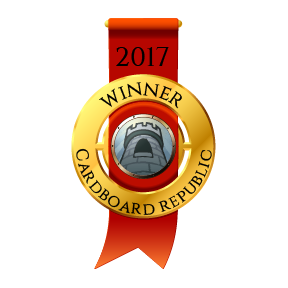The Cardboard Republic has rolled out the annual Laurels of the Republic awards, celebrating the best new games released in 2017 for each of the gamer archetypes. What follows are the finalists for one of those groups.
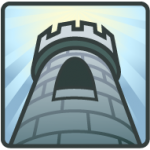 Whether it’s amassing the largest armies, hoarding the most gold, or building the best village, Architects are always on the lookout to expand their sphere of influence as much as possible. These world builders thrive on games where they feel the game has a point and that the best way to secure victory has more options than simply cracking skulls. Careful, methodical, and always looking to trade short term goals for long term opportunities, games of this nature reward strategy, persistence, and a sense of progression more than anything else.
Whether it’s amassing the largest armies, hoarding the most gold, or building the best village, Architects are always on the lookout to expand their sphere of influence as much as possible. These world builders thrive on games where they feel the game has a point and that the best way to secure victory has more options than simply cracking skulls. Careful, methodical, and always looking to trade short term goals for long term opportunities, games of this nature reward strategy, persistence, and a sense of progression more than anything else.
And with that, here are The 2017 Laurel Finalists for Architects:
Honorable Mention: Wasteland Express Delivery Service
Publisher: Pandasaurus Games | Players: 2-5 | Play Time: 90-120 Minutes
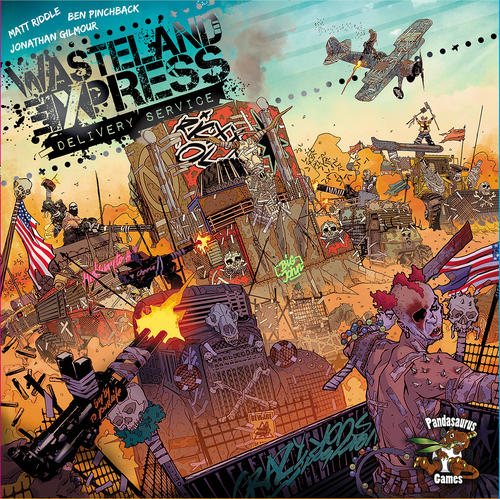 You’re flying down the dust-caked highway for what seems to be an endless eternity. The endless remnants of what used to be the civilized world sidle on by as the fuel gauge slowly ticks down. No time to stop now though. You’re in raider territory, and based on the screaming, and the mohawks, and a ridiculously large truck-mounted harpoon cannon taking up your rearview mirror, they aren’t far behind. They want your blood, as well as what you had carefully wrapped up in the passenger seat: a bag full of this week’s mail.
You’re flying down the dust-caked highway for what seems to be an endless eternity. The endless remnants of what used to be the civilized world sidle on by as the fuel gauge slowly ticks down. No time to stop now though. You’re in raider territory, and based on the screaming, and the mohawks, and a ridiculously large truck-mounted harpoon cannon taking up your rearview mirror, they aren’t far behind. They want your blood, as well as what you had carefully wrapped up in the passenger seat: a bag full of this week’s mail.
That, in a nutshell, is Wasteland Express Delivery Service. Just imagine yourself as the Road Warrior…if the Road Warrior worked for the Pony Express.
Wasteland Express combines two things that seemingly wouldn’t go together: a rich post-apocalyptic theme and a core mechanic centering on delivering the local post. In this detailed and flavorful pick-up-and-deliver game, players compete as members of the WEDS. Your job is to move good and packages from one isolated backwater remnant of a human settlement to the next, with the most successful driver being the winner. Throughout the course of the game you’ll have to raise funds, trick out your car, battle bands of roving psychotic bandits, and maybe hire a copilot just so you don’t get bored.
Wasteland may essentially be an elaborate game of ferrying items from one place to another, but it does so in a unique and zany setting that highlights its premise but also doesn’t take itself too seriously. By largely avoiding direct player conflict and providing plenty of opportunity to build up your transport skills as you drive towards victory (or at least the next payday), Wasteland Express Delivery Service delivers precisely the kind of madcap delivery game that Architects won’t mind embracing their inner Furiosa for.
The Nominees

Number Five: Otys
Publisher: Pearl Games / Asmodee | Players: 2-4 | Play Time: 60 Minutes
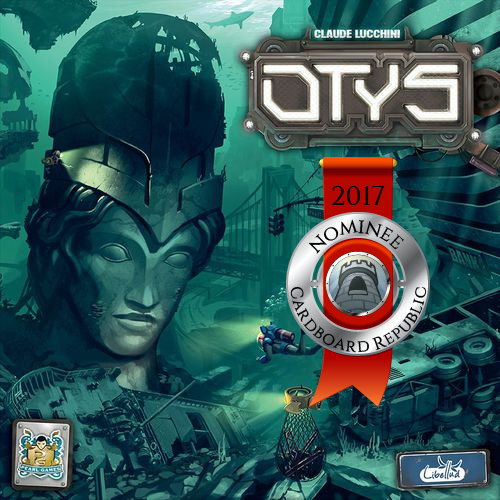 Some games entice you in with a lush world to visit and deeply flavorful characters you can portray as you explore that world. Other games lure you in by providing a clever and pleasurable puzzle to solve, its possible strategies fitting together like well-oiled clockwork pieces. Otys is very much in the latter category.
Some games entice you in with a lush world to visit and deeply flavorful characters you can portray as you explore that world. Other games lure you in by providing a clever and pleasurable puzzle to solve, its possible strategies fitting together like well-oiled clockwork pieces. Otys is very much in the latter category.
Otys is a game about organized salvage, set in a land where civilization has sunk beneath the…
Look, it’s…it’s Waterworld. Just replace boats with divers.
But don’t take that as a negative here. In this remarkably cerebral tableau game, each player is in charge of a dive team for their respective salvage rigs. Over the course of the game, you’re racing to complete as many contracts as you can, each requiring you to salvage a specific combination of resources on one of your board’s six different levels. Accomplishing this requires activating divers on one of those levels, letting you use their ability but also causing them to move to the top of the diver column as they surface. What’s more, each time you use a diver at a given level, you’re (generally) locked out from visiting it again until all six levels have been chosen at least once.
The resulting experience is one where you’re constantly trying to decide out the order to utilize your divers, and when, and at which locations. With a lot of moving pieces – literally, as the entire activation mechanic is demonstrated visibly via sturdy indented player boards – Otys is a delightful hour long game where each player sifts their way through a logic-driven aquatic riddle. With a mix of strategic planning, resource management, and the ability to plot their own course towards completing available contracts, Otys is bound to make a splash with Architects. No scuba lessons required.
Number Four: Sagrada
Publisher: Floodgate Games | Players: 1-4 | Play Time: 25-45 Minutes
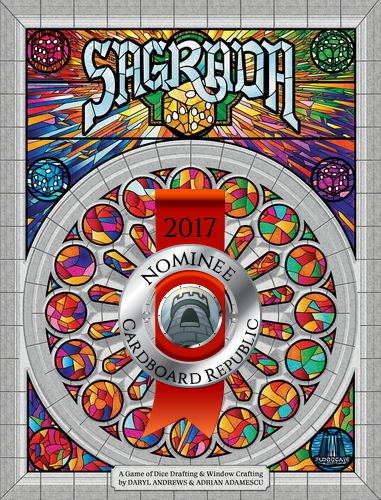
We knew Sagrada was bound to end up on the Laurel shortlist pretty much from the first time we saw the prototype at Gen Con 2016. That sentiment was amplified during the month we covered it as our April 2017 Indie Spotlight selection. Sure enough, this lightweight but flavorful dice placement game earned the distinction as being one of the earliest games on the nomination shortlist.
Which is sort of ironic when you think about it, given how quickly that decision was made while Sagrada itself is based on the building of a church that’s been under construction for over 100 years.
Over a handful of rounds, players draft and place colored dice onto an intended board representing a stained glass window. Each playthrough has you attempting to arrange these dice in very specific patterns in order to maximize your score. Doing so can be easier said than done, however, due to a handful of placement restrictions and various scoring bonuses each game which you may also want to work towards. Through this, Sagrada offers an easygoing spatial challenge to consider while also being approachable, picturesque, and fairly short.
Above all though, Sagrada is a game about building. The perfect board, the perfect window, the perfect color combination – it’s all in your hands…and in the dice. In Sagrada, Architects are given the opportunity to build up their board and to make meaningful decisions on how they do so, but they’re never in complete control. This forces players to adapt and strategize in ways that they otherwise might not. It pushes Architects just far enough out of their comfort zones without ever sacrificing that certain feel that Architects love: the feeling of watching your board blossom from a few small dice pips to a gorgeous complete window.
Number Three: Clans of Caledonia
Publisher: Karma Games | Players: 1-4 | Play Time: 30-120 Minutes
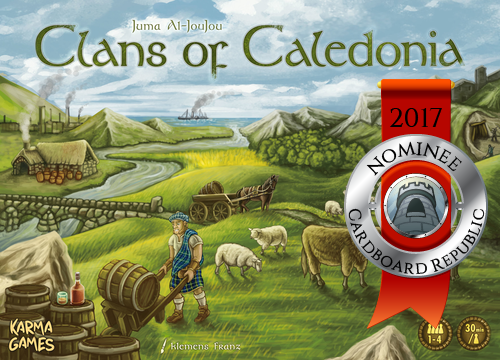 There were a number of highly successful Kickstarters in 2017, but the level of anticipation around Clans of Caledonia from Euro gamer fans was fervent and palpable from the get-go. It is a crunchy game about trying to collect the most points. It focuses on a managing numerous angles at once, including resource management, contract fulfillment, market manipulation, and board expansion. It is set in Scotland (it’s a thing). The artwork was done by Klemens Franz, whose signature style has become synonymous with a specific gaming style.
There were a number of highly successful Kickstarters in 2017, but the level of anticipation around Clans of Caledonia from Euro gamer fans was fervent and palpable from the get-go. It is a crunchy game about trying to collect the most points. It focuses on a managing numerous angles at once, including resource management, contract fulfillment, market manipulation, and board expansion. It is set in Scotland (it’s a thing). The artwork was done by Klemens Franz, whose signature style has become synonymous with a specific gaming style.
Oh, and much of the game’s mechanics are directly inspired by one of the most popular Euro games of all time. So much so that many – ourselves included – typically referred to Clans of Caledonia as Terra Mystica Lite.
However, such a shorthand description isn’t being derogatory. Quite the opposite, really. As good as TM is, Clans distinguishes itself as being shorter, easier to get to the table, and has much more thematic resonance In Clans of Caledonia, you aren’t just taking actions for the sake of it; what you do has a purpose.
Over the span of five rounds, players portray Scottish clans trying to produce and export goods, and then use that income to expand holdings on the central board. Clans of Caledonia simultaneously asks you to specialize on one area of moneymaking while maintaining a holistic approach to scoring at the exact same time, creating delightful decision-making tension.
All of this will entice Architects generally, but Clans of Caledonia has two attributes in particular that’ll make them flock here. For one, Clans caters to an Architect’s innate love of building and expanding on the map as you progress through the game (replete with adorable meeple pieces). Second, Clans inverts what advancement even looks like. In these lands, having more negative space on your player board is a sign of progress rather than decline, giving a worthwhile benefit to a process that hoard-loving Architects typically shy away from. Put all together, and Clans of Caledonia is easily a game this group will raise their glass to.
Number Two: Charterstone
Publisher: Stonemaier Games | Players: 1-6 | Play Time: 45-90 Minutes
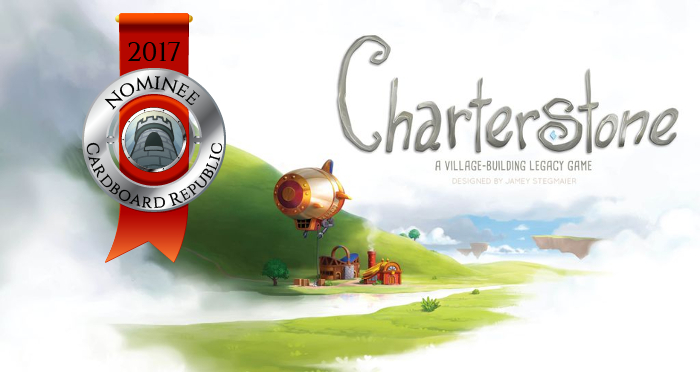
Charterstone was released late in 2017, but its end-of-year debut hardly invalidated it from quickly becoming one of the more intriguing games of the year, thanks largely to its lovely mix of legacy gameplay and easily palatable mechanics.
There was no holiday magic at work to thank for that either. Just deeply solid development, top-notch artwork, and ample room for civ-building enterprises.
In Charterstone, players have been tasked with constructing a new town in honor of their ruler, the Forever King. Over a 12 game campaign, players tailor their respective portions of a shared village by carefully deciding which unique buildings will be permanently affixed to the board. Unlike most legacy games, however, Charterstone is expressly designed to be fully replayable upon the campaign’s completion, adding even more weight to every sticker-based decision.
With relative ease, Charterstone hits many of the hallmark features Architects love in a game. The ability to modify, grow, and improve their territory as they see fit? Check. A tangible sense of pride that the expansion decisions you make have a direct impact on your chances at winning? Of course. A game where the entire premise revolves around progress with a purpose? Yes please! Charterstone affords all of these benefits to players and more…even once the campaign side of the equation has finally reached its conclusion.
We knew Charterstone was to be a charming and worthwhile Architect-friendly game from the onset. Unfortunately, much like the Forever King’s reign, this is a case of history repeating itself, being the second year in a row that an excellent title by Stonemaier Games made such a strong case for itself in this category as to make it all the way to the runner-up position. It could have taken the top spot too, if not for another equally colorful title…
The Winner
2017 Architect Laurel – Azul
Publisher: Plan B Games | Players: 2-4 | Play Time: 30-45 Minutes
 It’s not often that an abstract game receives the level of attention that Azul did. This was a title many gamers started paying attention to almost as soon as the first feedback started to roll in. Coming hot on the heels of its inaugural game, not even the newly formed Plan B Games knew that this beautiful yet rather unassuming title would go on to become one of the most talked about games in 2017.
It’s not often that an abstract game receives the level of attention that Azul did. This was a title many gamers started paying attention to almost as soon as the first feedback started to roll in. Coming hot on the heels of its inaugural game, not even the newly formed Plan B Games knew that this beautiful yet rather unassuming title would go on to become one of the most talked about games in 2017.
In Azul, players spend multiple rounds drafting colored tiles from different piles on the board. Only one color is chosen at a time, which must immediately be placed onto a row on your board’s staging area adjacent to your 5×5 grid. Each row requires varying tile amounts to complete, however, and completed rows only move to the grid at the end of a round. Add on top of that the fact that each row and column can’t contain more than one of the same color, and you have a casual game with plenty to think about and a pacing that can range from leisurely to cutthroat, all while being fairly non-interactive.
Like the ceramic tile artwork it’s championing, Azul is a game where each individual component is incredibly simple, almost to a point of being rudimentary. The more you combine those pieces together though, a picture emerges that transcends its component parts.
Also, Azul has stellar component parts.
It also has the distinction of being a game that defies normal assumptions on who will enjoy it – especially in the case of Architects. So many building/placement games just focus on the act of building itself and not the ramifications for doing so. Azul squarely thrusts that fact at you and in a way many other lightweight abstract games don’t.
In this colorful setting, it’s not just about ramping up item A to get you item B. Instead, like an artisan plying their trade, Azul gives you a sense of progression but in a more constrained way. You have to guide your actions and plan your turns, simple though they may be, always with a mindful eye towards the future, and it will make you pay the consequences for poor decisions. Yet it never deviates from its primary purpose, which is to create, expand, and ultimately be the most productive crafter around, which fits so seamlessly into an Architect’s wheelhouse that it makes every sense as to why Azul has earned the top spot for 2017.
![]()
Azul Contest!
We thought about different ways to highlight how great the winning title of the Architect Laurel is. Given how abstract the game is naturally, we naturally felt the urge to go the opposite direction and come up with a way of excessively highlighting its loose premise. We went so far as to start outlining a lengthy educational lecture to present that walked through the history of azulejos, from their inspiration in Roman mosaics, to their origins in Arab and Moorish culture, to their stylistic evolution as they made their way through Italy, Spain, and eventually to Portugal itself.
But then we realized most people probably would lose interest in that. 5% of you so much that you probably didn’t even read the paragraph above this. To wit, we decided to just focus on the game by raffling off a copy instead. So let’s get to it!
That’s right! Enter below for your chance at your very own copy of Azul!
Note: In honor of their award recognition, Plan B Games has kindly provided a copy of this game for giveaway purposes.
![]()
Be sure to check out the 2017 Laurel Award pages for the other archetypes once they go live!

